- Home
- Cecelia Ahern
Postscript Page 3
Postscript Read online
Page 3
I can’t celebrate the podcast’s success; I wish nobody had listened to it, I wish I hadn’t done it. I never want to hear or speak of Gerry’s letters ever again.
Gabriel’s house in Glasnevin, a single-storey Victorian terraced cottage that he patiently and lovingly restored to life himself, is a cosy eclectic home that, unlike mine, oozes with character. We lie on the floor, on a monstrous velvet bean bag atop a comfortable shagpile rug, drinking red wine. The living room is an internal room and so light, albeit dull February light, streams down on us from the roof light. Gabriel’s furniture is a mixture of antique and contemporary, whatever he liked and collected along the way. Every item has a story, even if it’s not a moving one, or has any value, but everything’s come from somewhere. The fireplace is the focus of the room; he doesn’t have a TV, and instead entertains himself with obscure music on his record player, or reads from his copious book collection, the current read being the art book Twenty-Six Gasoline Stations, made up of black-and-white photographs of gasoline stations in the US. The music mood is Ali Farka Touré, a Malian singer and guitarist. I stare up at the evening sky through the skylight. It’s wonderful, it really is. He’s what I need, when I need it.
‘When is the first house viewing?’ he asks, growing impatient at how slowly things have been progressing since we made the decision well over a month ago. My distraction since the podcast has knocked me off course.
My house hasn’t officially gone on the market yet, but I can’t bring myself to own up to that, so instead I tell him, ‘I’m meeting the estate agent at the house tomorrow.’ I lift my head to sip my wine and then return to resting on his chest, as strenuous a duty as this day commands. ‘Then you will be mine, all mine,’ I laugh maniacally.
‘I am already. By the way, I found this.’ He puts his glass down and retrieves a crumpled envelope from between a messy pile of books by the fireplace.
‘Oh yes, thanks.’ I fold it over and squeeze it behind my back.
‘What is it?’
‘A guy heard me speak at the shop. Thinks I’m a sexy widow and gave me his number.’ I sip my wine, serious.
His frown makes me laugh.
‘A woman in the audience at the podcast recording wants me to continue telling my story. She keeps pestering me to do more events, or to write a book.’ I laugh again. ‘Anyway, she’s a pushy rich woman that I don’t know very well and I told her I’m not interested.’
He looks at me with interest. ‘I listened to it in the car the other day. You spoke very movingly. I’m sure your words helped a lot of people.’ This is the first time he’s spoken positively about the podcast. I suppose my words were nothing he didn’t already know – our early days and months were spent in respective intimate soul-digging as we got to know each other – but I want to leave it all behind me.
‘I was helping Ciara.’ I shut his compliment down. ‘Don’t worry, I’m not going to start talking about my ex-husband for a living.’
‘I’m not worried about you talking about him, it’s what constantly reliving it could do to you.’
‘Not going to happen.’
He squirms on the bean bag and wraps his arm around me, I think for a hug, but his hand goes down beneath me and he grabs the envelope instead. He pulls it free.
‘You haven’t opened it. Do you know what’s inside?’
‘No. Because I don’t care.’
He studies me. ‘You do care.’
‘I don’t. Otherwise I would have opened it.’
‘You do care. Otherwise you would have opened it.’
‘It can’t be important anyway, she delivered it to me weeks ago. I forgot I had it.’
‘Can I at least see?’ He rips the top.
I attempt to grab it from him and instead I spill my wine on the rug. I clamber up out of his arms, pull myself up from the bean bag on the floor with a groan and hurry to the kitchen to retrieve a damp towel. I can hear him ripping the envelope open while I run the cloth under the tap. My heart is pounding. The prickles are rising on my skin again.
‘Mrs Angela Carberry. The PS, I Love You Club,’ he reads aloud.
‘What?!’
He raises the card in the air and I move closer to him to read it, the damp cloth drips and trickles on his shoulder.
‘Holly,’ he moves, agitated.
I take the card from his hand. A small business card with elegant print. ‘The PS, I Love You Club,’ I read aloud, feeling curious and furious at once.
‘What does that mean?’ he asks, wiping the sloppy mess from his shoulder.
‘I have no idea. I mean, I know what PS, I Love You means, but … is there anything else in the envelope?’
‘No, just this card.’
‘I’ve had enough of this nonsense. It’s like stalking.’ I grab my phone from the couch and move away from him for privacy. ‘Or plagiarism.’
He laughs at my abrupt change of mood. ‘You’d have to have written it down somewhere for it to be remotely so. Try to tell her to fuck off nicely, Holly.’ He turns his attention to his art book.
It rings for a long time. I drum my fingers on the counter, impatiently constructing a firm dialogue in my head about how she needs to leave this alone, back off, fuck off, kill it immediately. Whatever this club is, I will have nothing to do with it, and I insist that nobody else does either. I was helping my sister, and all I felt afterwards was exhausted and used. And those words belong to my husband, in my letters; they are not hers to use. My anger intensifies with each new ring, and I’m about to hang up when a man finally answers.
‘Hello?’
‘Hello. Could I speak with Angela Carberry, please?’
I feel Gabriel’s eyes on me, he mouths be nice. I turn my back to him.
The man’s voice is muffled as though he’s moved his mouth from the mouthpiece. I hear voices in the background and I’m not sure if he’s talking to them or me.
‘Hello? Are you there?’
‘Yes, yes. I’m here. But she’s not. Angela. She’s gone. She passed away. Just this morning.’
His voice cracks.
‘They’re here with me, the funeral people. We’re planning it at the moment. So I have no information for you as yet.’
I brake hard, careen into a ditch, anger crashed and burned. I try to catch my breath.
‘I’m sorry. I’m so sorry,’ I say, sitting down, noticing as I do that I have Gabriel’s full attention. ‘What happened?’
His voice is coming and going, weak and strong, wobbly, away from the receiver, back again. I can sense his disorientation. His world is upside down. I don’t even know who this man is and yet his loss is palpable and like a weight on my shoulders.
‘It was very sudden in the end, took us by surprise. They thought she had more time. But the tumour spread, and that was … well.’
‘Cancer?’ I whisper. ‘She died of cancer?’
‘Yes, yes, I thought you knew … I’m very sorry, who is this? Did you say? I’m sorry I’m not thinking very clearly …’
He talks on, confused. I think of Angela, thin and needy, holding on to my arm, squeezing me so tightly it hurt. I thought she was odd, I found her irritating, but she was desperate, desperate for me to visit with her – and I didn’t. I didn’t even call her. I barely gave her time. Of course she was moved by my talk, she was dying of cancer. She was holding on to my arm that day as though she was clinging to life.
I must be making a noise, I must be doing something because Gabriel is down on his knees beside me and the man on the other end of the phone is saying, ‘Oh dear, I’m sorry. I should have worded it better. But I haven’t had to … this is all very new and …’
‘No, no,’ I try to keep it all together. ‘I’m very sorry for disturbing you at this time. My sincere condolences to you and yours,’ I say quickly.
I dissolve the call.
I dissolve.
5
I did not kill Angela, I know that, but I cried as if I did. I kno
w that a phone call, a visit to Angela or an agreement to take part in one of her events would not have prolonged her life, and yet I cried as if it could have. I cried for all the irrational beliefs that stampeded through my head.
As Angela had been a generous contributor to the shop, Ciara feels obligated to attend her funeral and, despite Gabriel disagreeing, I feel I have even more reason. I had been hiding from Angela in the weeks before her death, I had shut her down so many times. We don’t often remember how we meet, we mostly remember how we part. I didn’t give Angela the best impression when we met, I want to say goodbye to her properly.
Her funeral is in Church of the Assumption in Dalkey, a picturesque parish church on the main street opposite Dalkey Castle. Ciara and I pass through the lingering crowds outside and go directly into the church and sit near the back. The funeral attendees follow the coffin and the family inside and the church pews fill. Leading the procession is a lone man, her husband, the man I spoke with on the phone. He is followed by crying family and friends. I’m satisfied to see he is not alone, that people are sad, that Angela is missed, that her life contained love.
It’s clear the priest didn’t know Angela very well, but he does his best. He has collected the core information about her, like a magpie drawn to shiny items, and he has a kind delivery. When it’s time for the eulogy, a woman takes to the podium. A TV screen is wheeled into the old church, wires and all.
‘Hello, my name is Joy. I would love to say a few words about my friend Angela, but she told me I couldn’t. She wanted to have the last word. As was usual.’
The congregation laughs.
‘Are you ready for this, Laurence?’ Joy asks.
I can’t see or hear Laurence’s response but the screen comes to light anyway and Angela’s face fills the screen. She is thin, clearly this was filmed in her final weeks, but she is beaming.
‘Hello, everybody, it’s me!’
This draws gasps of surprise, and the tears flow around me.
‘I hope you’re all having an awful time without me. Life must be dreadfully dull. I’m sorry I’m gone, but what can we do. We must look forward. Hello, my darlings. My Laurence, my boys, Malachy and Liam. Hello, my little babies, I hope Grandma isn’t scaring you. I hope to make things a little easier for you. Well, let’s move it on. Here we are in my wig room.’
The camera turns around, held by her, to survey her wigs. Wigs of various shapes, colours and styles sit on mannequin heads on shelves.
‘This has been my life for some time, as you all know. I thank Malachy for bringing this one home from a recent music festival,’ she zooms in on a Mohawk. She lifts it off and places it on her head.
Everybody laughs through their tears. Hankies flying, tissues being taken out of handbags and passed along the pews.
‘So, my darling boys,’ she continues, ‘you three are my most precious people in the whole entire world and I’m not ready to say goodbye to you. Beneath these wigs I’ve taped envelopes to every head. Each month I want you to remove a wig, place it on your head, open these envelopes, read my notes, and remember me. I’m always with you. I love you all and thank you for the happiest, most blessed beautiful life a woman, wife, mother and grandmother could wish for. Thank you for everything.
‘PS,’ she blows a kiss, ‘I love you.’
Ciara grabs my arm and slowly turns to look at me. ‘Oh my …’ she whispers.
The screen goes black and everybody, everybody is crying. I can’t imagine how her family feel after this. I can’t look at Ciara. I feel sick. I feel dizzy. I feel like there’s no air. Nobody is paying the slightest attention to me but I feel self-conscious, as if they all know about me, and what Gerry did for me. Would it be rude for me to leave? I’m so near to the door. I need air, I need light, I need to get out of this claustrophobic suffocating scene. I stand and steady myself on the back of the pew then walk towards the door.
‘Holly?’ Ciara whispers.
Outside, I suck in air, but it’s not enough. I need to move away, get away.
‘Holly!’ Ciara calls, hurrying to catch up with me. ‘Are you OK?’
I stop walking and look at her. ‘No. I’m not OK. I’m definitely not OK.’
‘Shit, this is my fault. I’m so sorry, Holly. I asked you to do the podcast, you didn’t want to and I practically forced you, I’m so sorry, this is all my fault. No wonder you were avoiding her. It all makes sense now. I’m so sorry.’
Her words somehow manage to steady me, it’s not my fault for feeling like this. This happened to me. It’s not my fault. It’s unfair. She’s offering sympathy. She hugs me and I rest my head on her shoulder, back to feeling weak and vulnerable and sad. I don’t like it. I stop myself. My head snaps up.
‘No.’
‘No what?’
I wipe my eyes roughly and charge towards the car. ‘This is not who I am any more.’
‘What do you mean? Holly, look at me please,’ she pleads, trying to meet my eye as I look around wildly, desperate to sharpen my focus, desperate to get things in perspective.
‘This is not happening to me again. I’m going back to the shop. I’m going back to my life.’
The skill I discovered when I began working with my sister, after the magazine I worked for folded, is that I’m good at sorting. While Ciara is a magnificent creature when it comes to dealing with the aesthetic, beautifying the shop and placing each item in a place of importance, I could happily, and do quite happily, spend long days in the stockroom emptying boxes and bin liners of the things people no longer want. I get lost in the rhythm of it. These actions are particularly therapeutic in the days that follow Angela Carberry’s funeral. I empty everything on to the floor, sit down and go through the contents of handbags and pockets, sorting the precious from the trash. I polish jewellery until it sparkles, shoes until they shine. I dust off old books. I discard anything that’s not appropriate: dirty underwear, odd socks, used handkerchiefs and tissues. Depending on how busy I am, I can be nosy and get lost in studying receipts and notes, trying to date the last use of the object, understand the life of the person who lived with it. I run the clothes through a rinse wash, I use a steamer to smooth wrinkled fabric. I treasure anything of value: money, photographs, letters that should be returned to their sender. As far as possible, I make detailed notes of who owns what. Sometimes the possessions will never be reunited with their owner; those who have dropped boxes and bags off without contact details are just happy to be rid of their clutter. But sometimes I manage to matchmake. If we don’t feel we can sell the product, if it’s not right for Ciara’s vision, then we repackage them and give them to charities.
I take what’s old and make it new and I’m rewarded by the belief that there is value in my work. Today is a good day to get lost in a cardboard box filled with possessions that became objects as soon as they were dropped into the bag. I lift a box of books from the stockroom and carry them to the shop floor. Again I sit on the floor, wiping covers, folding back dog-eared pages and flicking through the pages for bookmarks of value. Sometimes I find old photographs that are used as bookmarks; mostly I don’t find anything, but every find is important. I’m lost in this world of sorting when the bell rings above the shop door.
Ciara is across the other side of the shop battling with a disarmed and beheaded mannequin as she tries to squeeze a polka-dot tea dress onto its body.
‘Hello,’ she greets the customer warmly.
She is better with customers than I am. I focus on the products when given the choice and she focuses on the people. She and Mathew opened the shop five years ago after they bought it as a house on St. George’s Avenue in Drumcondra, Dublin. The front of the house already had a floor-to-ceiling window built in, from its former life as a sweet shop. They live upstairs in a flat. As a second-hand shop on a quiet terraced street, we don’t attract much in the way of passing trade, but people travel to get here, and the local university provides plenty of students as customers, lured by the cheape
r prices and the cool factor that comes with wearing vintage. Ciara is the star of the shop, hosting evening events, attending trade fairs, contributing to magazines, and a sometime-TV-presenter of breakfast television fashion slots, displaying the latest arrivals to the shop. If she is the heart of this shop, Mathew is the brains who handles the accounts, runs their online presence and oversees the technical side of the podcasts, and I’m the guts.
‘Hello,’ the customer, a woman replies.
I can’t see her, I’m hidden behind a display unit, sitting on the floor. I’m already zoning out and allowing Ciara to do her thing.
‘I recognise you,’ Ciara says. ‘You spoke at Angela’s funeral.’
‘You were there?’
‘Yes, of course. Angela was a fantastic supporter of the shop. My sister and I were there. We’ll miss her, she was a powerhouse of a woman.’
So now I’m listening.
‘Your sister was there too, you say?’
‘Yes. Holly, she’s … busy at the moment.’ Ciara uses her smarts and remembers that I will not wish to speak to this woman, as I have not wanted to speak about the entire funeral episode since it happened two weeks ago.
I did what I said I would do. I returned to the shop, I went back to my life, I tried not to think of what happened at the funeral for one second, but inevitably I did. I can’t stop thinking about it. Angela was clearly inspired by my experience with Gerry’s letters to do the same for her family in her final weeks, this I understand, but what I don’t understand is her business card. What on earth was she intending on doing with the PS, I Love You Club? Over the past few weeks I’ve wanted to know and I didn’t want to know and yet, here I am, not wanting to be seen but wanting to hear at the same time.
‘Did Holly …’ The woman abandons her question. ‘My name is Joy, pleased to meet you. Angela loved this shop. Did you know this is the house she grew up in?’
‘No! She never mentioned it. Never, I can’t believe it.’
‘Yes. Well, it would have been like her not to say. She and I were school friends, I lived around the corner. We recently reconnected, but I know she would have enjoyed seeing her belongings in the place she grew up – not that we had such fine things back then. I still don’t.’

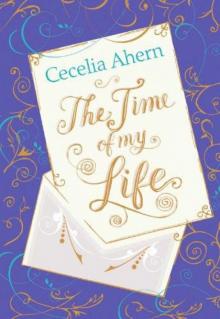 The Time of My Life
The Time of My Life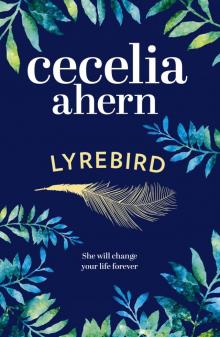 Lyrebird
Lyrebird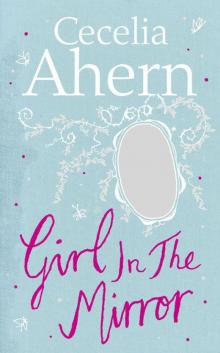 Girl in the Mirror
Girl in the Mirror Perfect
Perfect One Hundred Names
One Hundred Names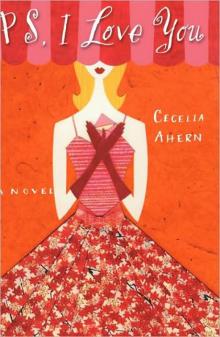 PS, I Love You
PS, I Love You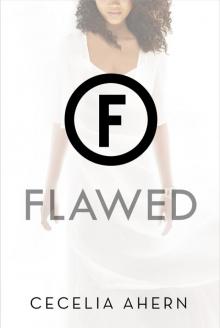 Flawed
Flawed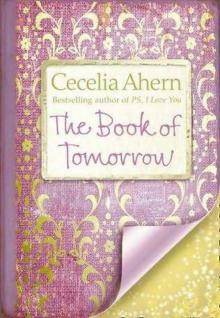 The Book of Tomorrow
The Book of Tomorrow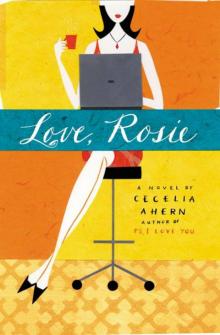 Love, Rosie
Love, Rosie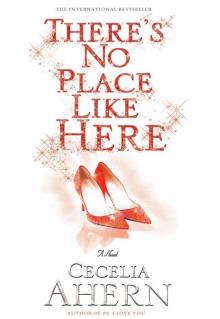 A Place Called Here
A Place Called Here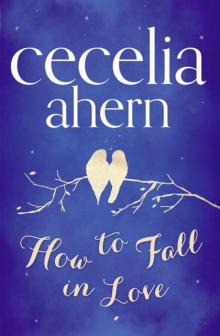 How to Fall in Love
How to Fall in Love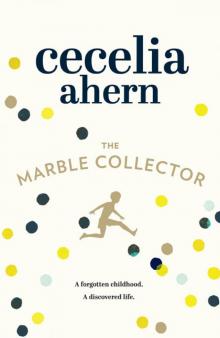 The Marble Collector
The Marble Collector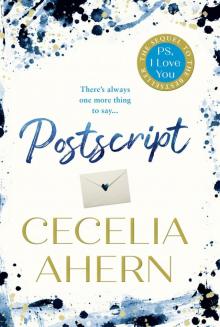 Postscript
Postscript The Gift
The Gift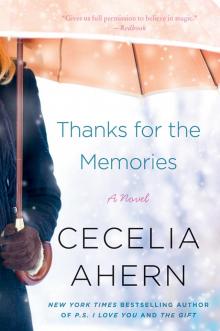 Thanks for the Memories
Thanks for the Memories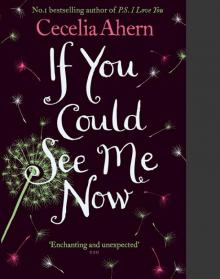 If You Could See Me Now
If You Could See Me Now Roar
Roar Cecelia Ahern 2-book Bundle
Cecelia Ahern 2-book Bundle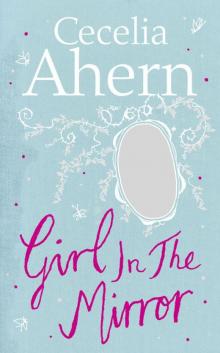 Girl in the Mirror: Two Stories
Girl in the Mirror: Two Stories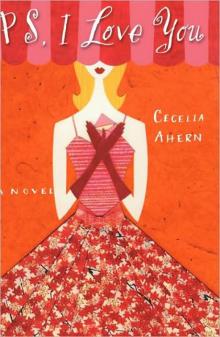 PS, I Love You: A Novel
PS, I Love You: A Novel Cecelia Ahern Short Stories
Cecelia Ahern Short Stories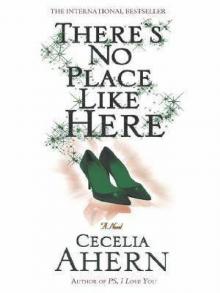 There’s No Place Like Here
There’s No Place Like Here